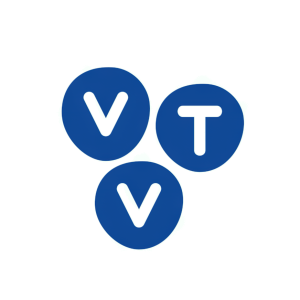vTv Therapeutics Announces Issuance of U.S. Patent Covering Methods of Treatment Using TTP399
vTv Therapeutics announced the issuance of the U.S. Patent 10,952,993, protecting treatment methods using TTP399 for type 1 diabetes. This patent, expiring in 2039, covers lowering HbA1c and reducing hypoglycemia incidence by administering 400 mg to 1200 mg of TTP399 daily alongside insulin. The company aims for Orange Book listing and is enhancing its patent portfolio. TTP399 is currently under study for diabetic ketoacidosis and is set for pivotal trials this year.
- Issuance of U.S. Patent 10,952,993 protects TTP399, extending intellectual property.
- Patent covers methods to lower HbA1c and reduce hypoglycemia in type 1 diabetes.
- Expected Orange Book listing increases market potential.
- Plans to initiate pivotal studies later this year could drive future growth.
- None.
Insights
Analyzing...
Claims cover methods of reducing HbA1c and the incidence of hypoglycemia using TTP399 in patients with type 1 diabetes
HIGH POINT, N.C., March 23, 2021 (GLOBE NEWSWIRE) -- vTv Therapeutics Inc. (Nasdaq: VTVT) announced today that the U.S. Patent and Trademark Office has issued a patent with claims protecting methods of treatment using TTP399, the company’s oral glucokinase activator. The patent number is 10,952,993 (‘993 Patent).
The ‘993 Patent, expiring in 2039, includes claims covering a method of lowering HbA1c and also reducing the incidence of hypoglycemia in patients with type 1 diabetes by orally administering between 400 mg to 1200 mg of TTP399 per day as an adjunct to insulin therapy.
vTv expects that the ‘993 Patent will be Orange Book-listable. The ‘993 Patent adds to the portfolio of US patents covering TTP399, including a composition of matter patent that is expected to expire as late as 2030. vTv continues to prosecute additional patent applications to further enhance its existing patent portfolio covering TTP399.
“This newly-issued patent is an important addition to the intellectual property portfolio that serves as the underpinnings for our strategy with TTP399 as an oral adjunctive treatment in type 1 diabetes,” said Steve Holcombe, CEO of vTv Therapeutics.
As vTv recently announced, TTP399 is currently being studied in a randomized, double blind, mechanistic study in patients with type 1 diabetes evaluating the drug’s effect on the risk of diabetic ketoacidosis. In addition, the company is planning to initiate its first pivotal study with TTP399 in patients with type 1 diabetes later this year, along with other NDA supporting studies.
Type 1 Diabetes
Type 1 diabetes (T1D) is an autoimmune disease in which a person’s pancreas stops producing insulin, a hormone that enables people to get energy from food. It occurs when the body’s immune system attacks and destroys the insulin-producing cells in the pancreas, called beta cells. While its causes are not yet entirely understood, scientists believe that both genetic factors and environmental triggers are involved. Its onset has nothing to do with diet or lifestyle. There is nothing you can do to prevent T1D, and—at present—nothing you can do to cure it.
About vTv Therapeutics
vTv Therapeutics Inc. is a clinical-stage biopharmaceutical company focused on developing oral, small molecule drug candidates. vTv has a pipeline of clinical drug candidates led by programs for the treatment of type 1 diabetes and inflammatory disorders, including psoriasis. vTv’s development partners are pursuing additional indications in type 2 diabetes, chronic obstructive pulmonary disease (COPD), renal disease, and primary mitochondrial myopathy. For more information, please visit https://vtvtherapeutics.com/ or follow us on Twitter: @vTvTherapeutics.
Forward-Looking Statements
This release contains forward-looking statements, which involve risks and uncertainties. These forward-looking statements can be identified by the use of forward-looking terminology, including the terms “anticipate,” “believe,” “could,” “estimate,” “expect,” “intend,” “may,” “plan,” “potential,” “predict,” “project,” “should,” “target,” “will,” “would” and, in each case, their negative or other various or comparable terminology. All statements other than statements of historical facts contained in this release, including statements regarding the timing of our clinical trials, our strategy, future operations, future financial position, future revenue, projected costs, prospects, plans, objectives of management and expected market growth are forward-looking statements. These statements involve known and unknown risks, uncertainties and other important factors that may cause our actual results, performance or achievements to be materially different from any future results, performance or achievements expressed or implied by the forward-looking statements. Important factors that could cause our results to vary from expectations include those described under the heading “Risk Factors” in our Annual Report on Form 10-K and our other filings with the SEC. These forward-looking statements reflect our views with respect to future events as of the date of this release and are based on assumptions and subject to risks and uncertainties. Given these uncertainties, you should not place undue reliance on these forward-looking statements. These forward-looking statements represent our estimates and assumptions only as of the date of this release and, except as required by law, we undertake no obligation to update or review publicly any forward-looking statements, whether as a result of new information, future events or otherwise after the date of this release. We anticipate that subsequent events and developments will cause our views to change. Our forward-looking statements do not reflect the potential impact of any future acquisitions, merger, dispositions, joint ventures or investments we may undertake. We qualify all of our forward-looking statements by these cautionary statements.
Contacts
Investors:
Corey Davis
LifeSci Advisors
CDavis@LifeSciAdvisors.com
or
Media:
PR@vTvTherapeutics.com







